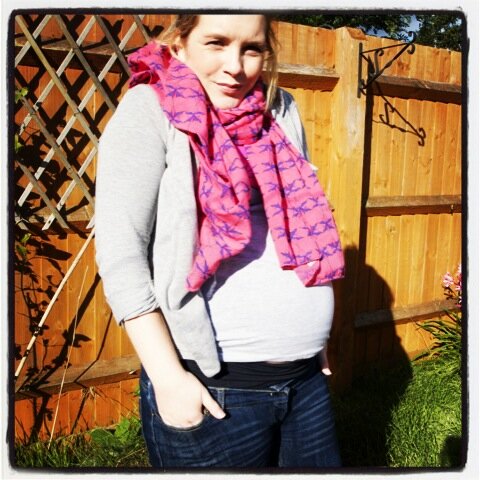Stress in pregnancy… lifting the taboo!
- At December 19, 2013
- By Svetlina O'Regan
- In Women's health
-
 2
2
I love working with women… I find them extraordinary. I have a particular interest in working with mothers and expectant mothers.
You may not know this but last month was National Stress Awareness Day for which I conducted interviews on stress in pregnancy. It’s a subject I’m very passionate about because stress can affect both mother and baby.
Stress during pregnancy is not much talked about. Pregnancy is often viewed as a time where we should be blooming and for most it is. But 10 to 15% of women experience stress while pregnant. What upsets me most is that these women can feel guilty or ashamed and therefore will not get the help they need. So I wanted to talk about it.
Many of you will not be pregnant and perhaps think… I’m not pregnant, why should I be concerned? We are all concerned. We all come into contact with expectant mothers. However small, we all have a role to play in lifting the taboo and supporting those women.
What’s the big deal about stress in pregnancy?
Over the past 10 years or so, researchers have found that stress hormones can be passed through the placenta to the unborn child. Stress hormones like cortisol can influence the physical and psychological development of the child. I know this sounds a bit scary.
Even though according to Vivette Glover, Professor in Perinatal Psychobiology, “most babies will not be affected” our stress levels ought to be one of the things we take into consideration while pregnant – just like eating nutritious foods and leading a healthy lifestyle.
This highlights the importance of taking care of ourselves emotionally as well as physically.
How to recognise the signs
We all experience stress. It only becomes a problem when you start feeling overwhelmed, have low moods, lose motivation, develop tension headaches, back aches or disturbed sleep for example. There are many ways by which the strain of stress becomes visible: it can be emotional, it can be behavioural or it can show through our body (psychosomatic).
If you are getting some of these signs and they persist, then don’t wait and hope that they’ll go away. Perhaps you may just need to make a few adjustments to your life but if it affects you more deeply, then it is essential that you seek appropriate help.
What to do about it?
- The first thing is to break the silence and talk about it with your partner/husband, family and/or friends. Avoid keeping it to yourself. Saying things out loud is an important first step and it may be enough.
- Try and identify the source of stress or dissatisfaction; is it work? Do I feel lonely? Am I nervous about becoming a mother? Is it financial pressures? Writing things down can also be a great help.
- Take care of yourself. However obvious this sounds, it is nonetheless crucial. Eat healthily, get rest, do more of the things you enjoy, keep your body moving. Most of all, listen to yourself and your body!
- Allow yourself to be the ‘pregnant you’. Recognising that you are pregnant and that your body is working incredibly hard to make another human being is very important. Give yourself space to get to know yourself as the ‘pregnant you’. See what that feels like – needing more rest, being more emotional, slowing down, feeling excited, wanting to be with family – whatever shape that takes.
- Start building a support network. One very common issue new mums encounter is a deep feeling of isolation. Probably the best remedy for this is to anticipate this by joining a class and making friends who are at a similar stage in their pregnancy. We are blessed in the UK with countless groups and classes. Here in Oxfordshire I would like to recommend two wonderful classes:
- Zumba4Bump lead by Dr Lesley Smith and Midwife Lecturer Ethel Burns of Oxford Brookes University. Zumba4Bump is fun and refreshing for those who enjoy music and keeping fit. They also run Bump Club which gives sound support and advice to women throughout their pregnancy and beyond.
- Birth, Ball & Breathing run by Sarah Boyd from Birth, Baby, Balance. Sarah is a very experienced antenatal teacher and does amazing work where she teaches key skills for labour and beyond.
- If those feelings of overwhelm continue, then do reach out. You can speak with your GP or midwife. You may also need to the support of a therapist and you can choose to self-refer. Therapy can be invaluable as it offers a space where you can reflect, explore and change freely with the support of a ‘trained listener’ – someone who is interested in you while not being involved in your life. This can be an enriching journey toward greater fulfilment.
A final thought
Post-natal depression is becoming better known as women are beginning to talk about it more openly and celebrities are also starting to share their experiences of it. Antenatal depression is less well known and it is important to talk about it. Not all stress during pregnancy leads to antenatal depression of course, far from it. But women’s health at this precious time is just as important as their physical health.
My wish here is not to frighten women or make them feel guilty about stress. Instead, it is to raise awareness and encourage those women to reach out and look for the solutions that suit them. I would want for those women to be free enough to not feel judged or inadequate so they can look after their overall wellbeing in the best way possible – for them, their baby and their family.
(Read more about Svetlina on the Contributors page or visit her website, Blossom House)
Photo credit: Mental Health Association of NSW stress less poster 2013.








